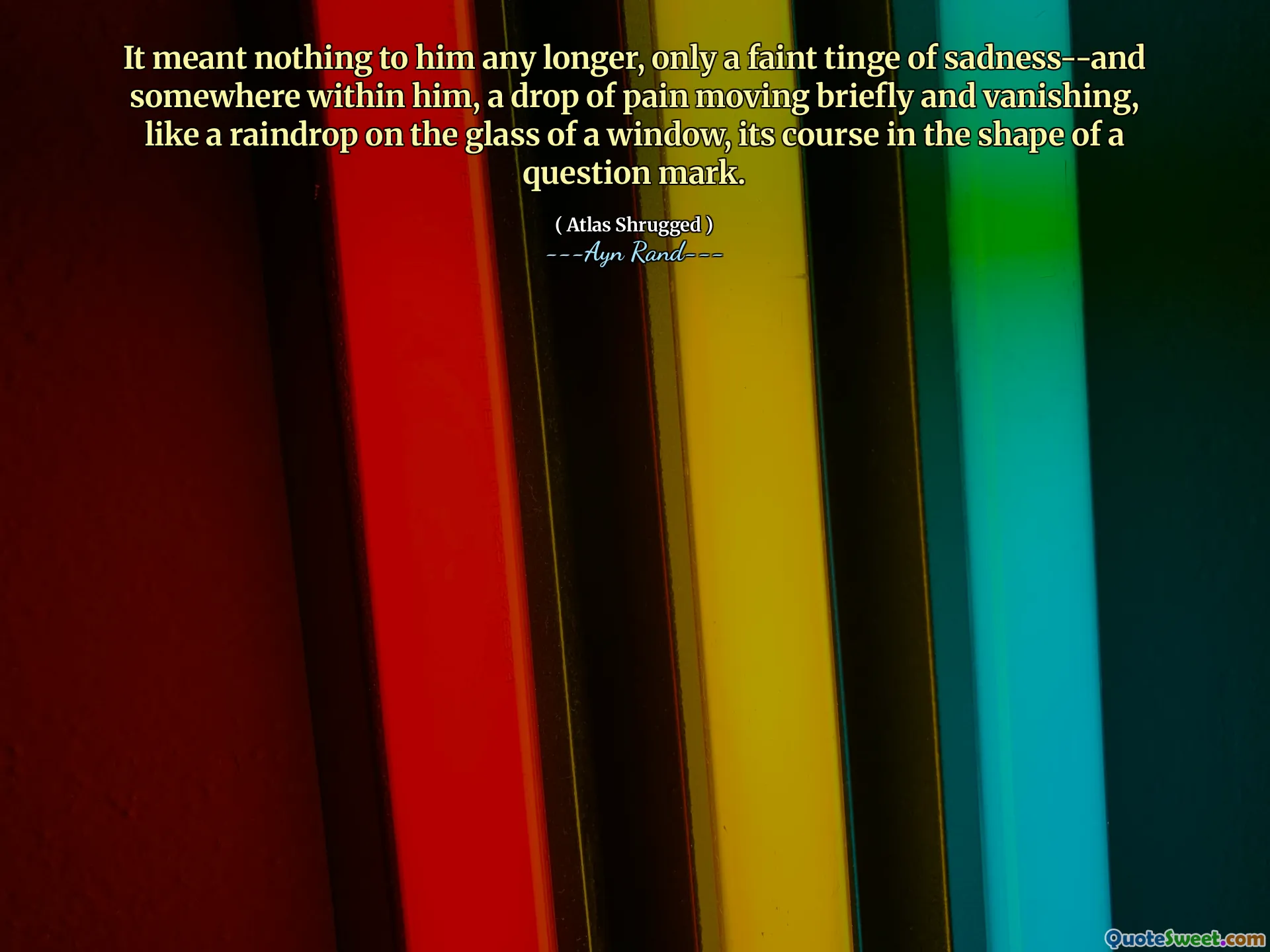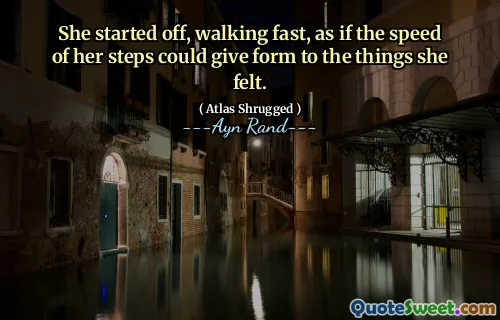
It meant nothing to him any longer, only a faint tinge of sadness--and somewhere within him, a drop of pain moving briefly and vanishing, like a raindrop on the glass of a window, its course in the shape of a question mark.
This quote from Ayn Rand's Atlas Shrugged beautifully captures the subtle dynamics of emotional detachment and the lingering presence of unresolved feelings. The image of a "drop of pain moving briefly and vanishing, like a raindrop on the glass of a window" evokes a transient but impactful experience. The metaphor of the raindrop's course forming a question mark poignantly symbolizes confusion, doubt, or introspection. It suggests that despite an attempt to shrug off emotions or their underlying meaning, traces remain as fleeting, yet telling, marks of inner turmoil.
One can interpret this subtle sadness and pain as emblematic of moments when past experiences once charged with significance become distant memories—no longer shaping one's present decisions, yet unwilling to be fully erased. It emphasizes how pain, even if momentary, can raise unasked questions and prompt us toward deeper reflection, representing the complexity of human emotional architecture.
Moreover, the quote highlights the human condition's delicate balance between emotional disengagement and inevitable self-questioning. It suggests that parts of the self resist complete numbness, manifesting as subtle, almost imperceptible signals akin to the delicate trail of a raindrop. From an existential standpoint, this fleeting pain contrasts with Rand’s usual advocacy for rationality and self-determination, hinting at the persistent shadows emotions cast despite the will to transcend them.








